Black Country Characters - Harold The Tramp on His Local Rounds - Brierley Hill, Quarry Bank, Netherton and Cradley Heath in the 1950s - 1960s.
A Black Country Species:
Harold The Tramp
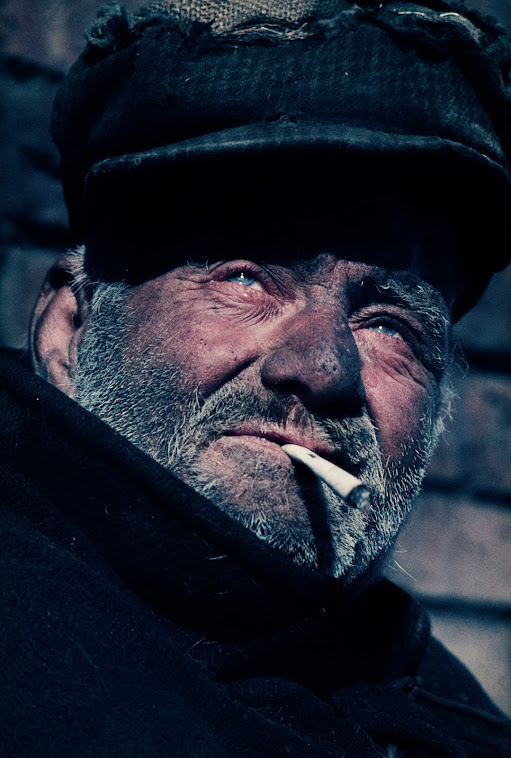 |
Tears wakened by the mornings glaring sun
washed clean his blue-bright eyes,
looking back to lifes endeavours failed
despite bold and valiant tries.
Grey stubble bristled on the crust
of his dark soot-stained face
hole'd cap bound tight in binding wire
sheltered winters icy-cold embrace.
His habitat then the old brick kilns
where they mined and hammered clay,
his nightly bed was a layer of bricks
still warm from a working day.
|
Harold the tramp was a local Black Country character in the 1950s - 1960s.

Dressed in rags he was often seen shuffling along his well worn route through Brierley Hill, Quarry Bank, Netherton and Cradley Heath. His poor old pavement worn legs would even carry him, as far-a-field as Colley Gate, a long way from his warm shelter in the old brickwork kilns in the basin of the Delph, Brierley Hill.
Like all tramps Harold smoked, mainly from discarded nub ends sometimes rolled in newspapers. Harold had no job anymore, he had no money or wish for material things. He wandered the Black Country streets not for joy, but to eat and survive, he was an unfortunate inhabitant of one of the richest countries in the world.
Harold was a shuffling man,
he walked at no great pace,
local pavements his field of dreams,
life was no great race.
more Black Country Characters in the book "As If It Were Yesterday" now available in the store.
The Telegraph
Peter Donnelly's prize-winning essay offers a brilliant example of how local, and often unprepossessing, backgrounds can provide the material for an outstanding colour story. All his photographs were taken within a few miles of his home in Birmingham, Brierley Hill, at Blackheath, Bilston and Cradley Heath. He took them over a period of several months while on weekend walks along the deserted banks of the local canals. "Most evenings I never met a soul," Mr Donnelly recalls. "There was an air of isolation, and often desolation, over the whole scene, and this is what I have tried to capture in my photographs." The camera used was a Pentakon F and the film Agfa and Kodachrome.
by Dr Carl Chinn MBE
Peter Donnelly was born in Birmingham, educated at Corpus Christi junior school, Stechford and later at the holy rosary, Saltley. While at the Holy Rosary he took and passed a drawing examination for Moseley school of art at which he spent several years tuning his artistic talent.
On leaving the art school he joined Birmingham printers, Sam Currier & Son in brook street, St Pauls square, as an apprentice commercial artist. After completing his apprenticeship he left Sam Currier and worked at various printers and advertising agencies gaining valuable experience before starting with his working associate Bob Burns (typographer). Donnelly Burns Graphic Design studio was in Chapel Street, Lye before moving to larger premises in Cradley heath then Harborne.
Before starting the business Peter entered and won the Sunday Telegraph national photographic competition. He submitted an essay of photographs illustrating the demise of the Birmingham and Black Country canals with fellow photographer Norman Fletcher. To Peter and Norman, Midlands photographers and photographic societies seemingly had ignored the once great industrial arena that surrounded their everyday lives.
What an arena! what powerful exiting subjects for the camera; neglected canals, weed and web woven towpaths, old worn out narrow boats – redundant and half submerged in silted murky brown waters; steam trains rattling, hissing and bumping their waggons into line and the rail men who worked the line at that time.
Old foundries, run down factories and scrapyards – the industrial flotsam of a once great manufacturing region. Many six o’clock early morning starts were walked and many miles covered by Peter and his camera.
Now over 60 years later, photographs taken during those early excursions are being published - looking back at the time, long before the surge of change and reconstruction 1962 - 1965
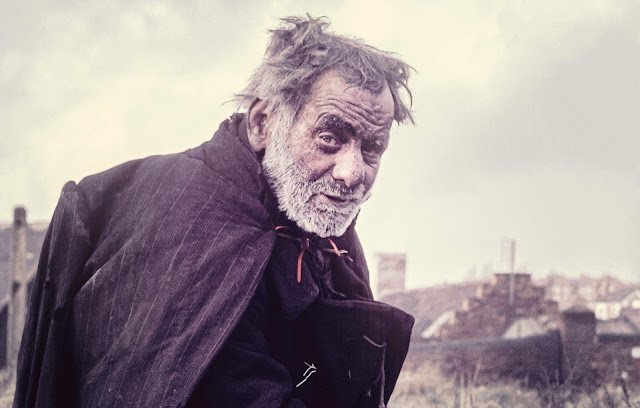







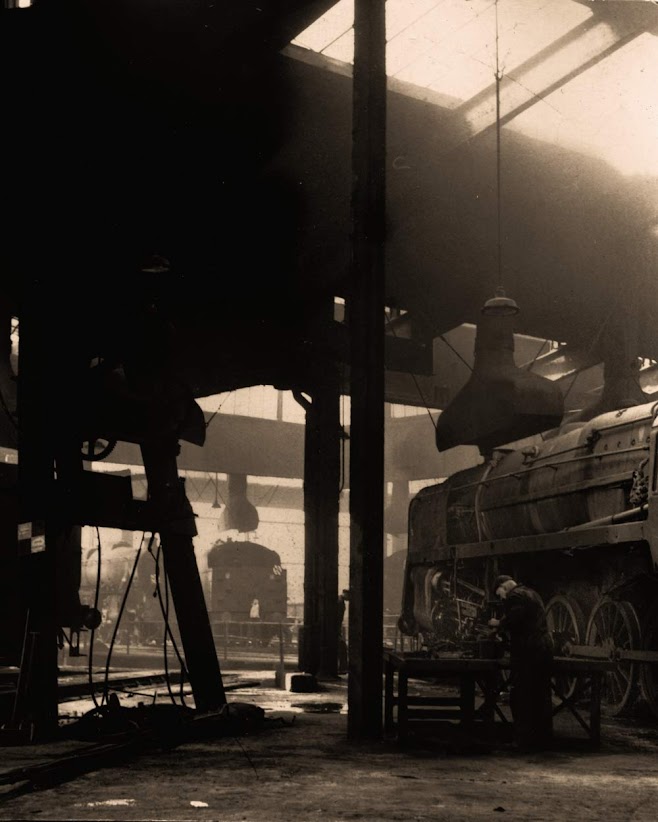
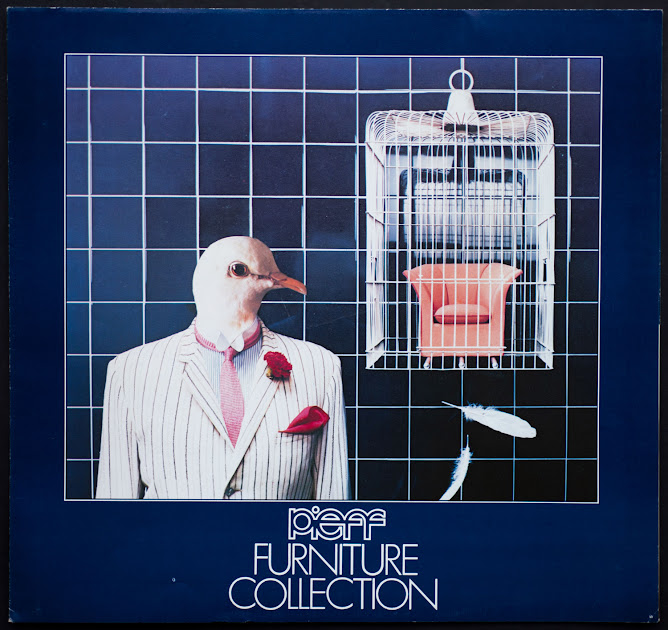



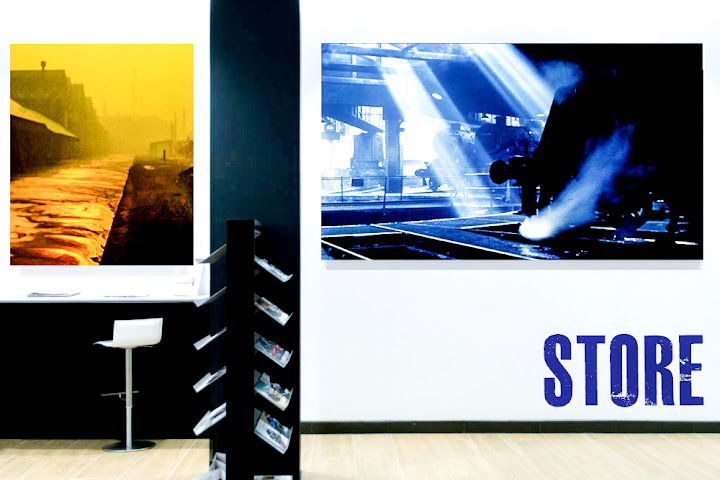
Comments
Post a Comment